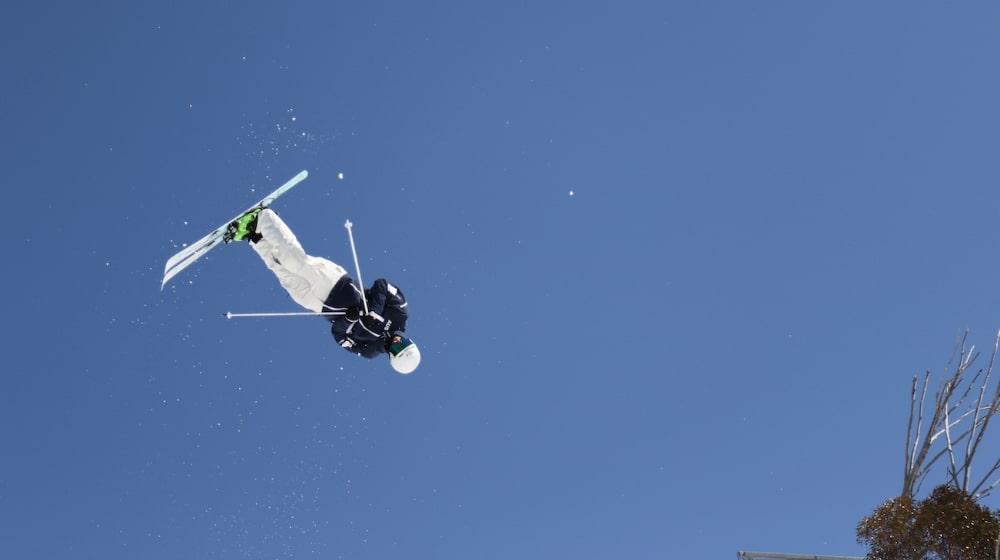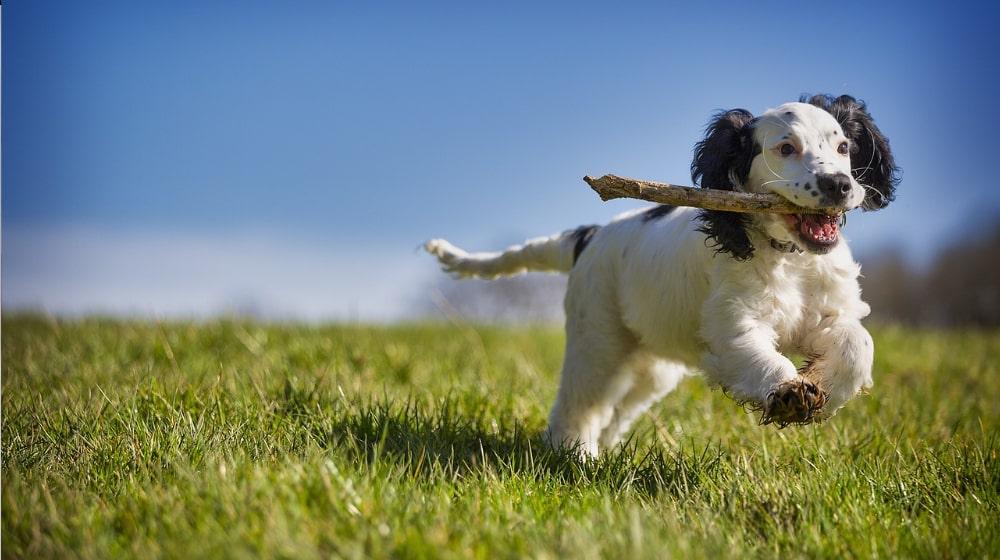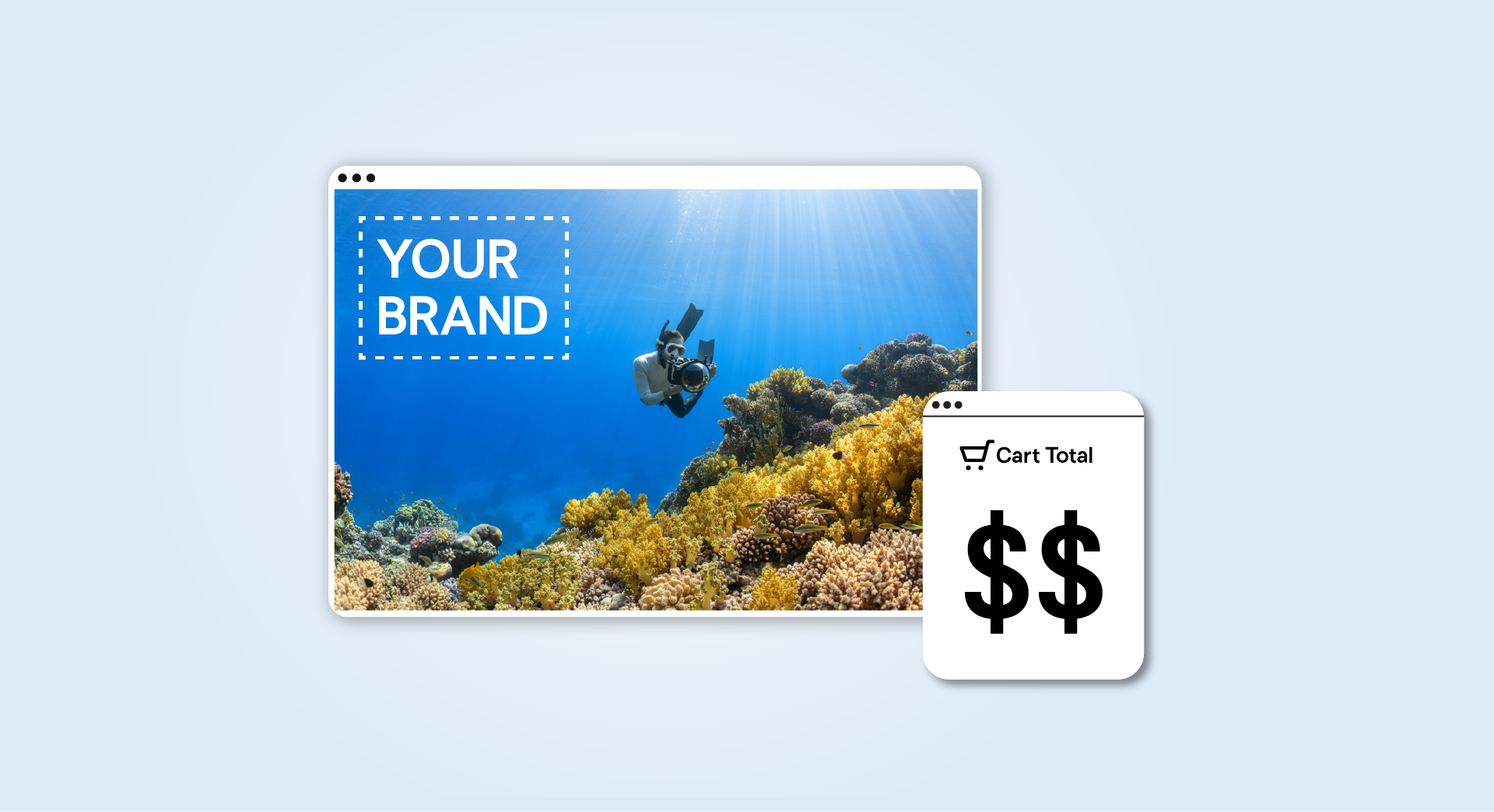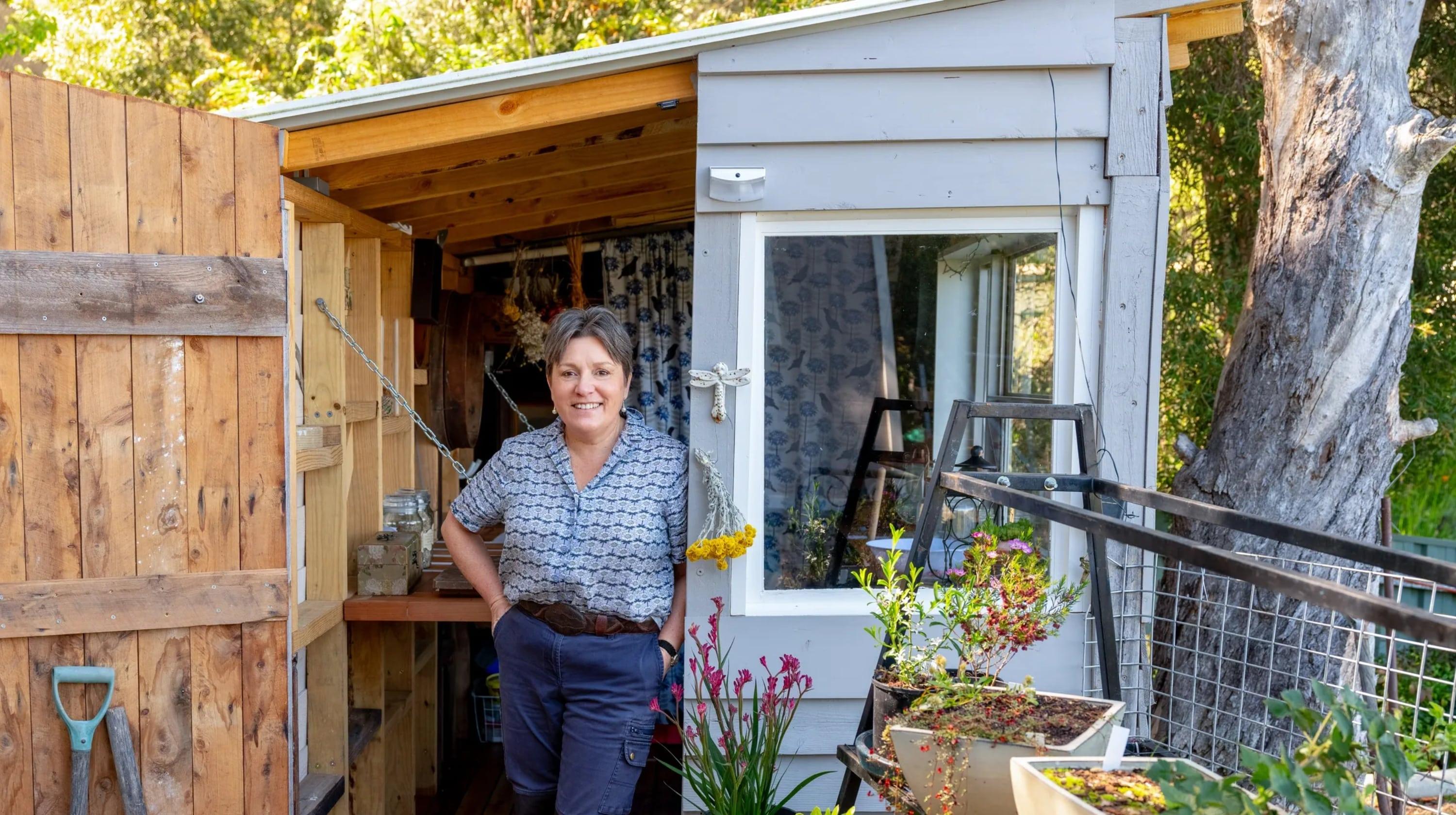As the official Website Builder Partner of the Australian Olympic Team, GoDaddy’s proud to support inspirational Aussie athletes chasing their dreams like World Cup and Olympic silver medalist mogul skier Matt Graham. This interview was conducted in December 2021 — ahead of the 2022 Beijing Winter Olympics.
GoDaddy: Mogul Matt! Thanks so much for chatting with us today. I can see you’re sporting a bit of an injury there. What happened?
Matt Graham: So we were in Sweden for the second round of the World Cup tour this year [2021], and it was on the Saturday training session before the finals.
On my first run, I caught myself up in the moguls and went over the front and decided to shoulder charge the mogul.
Broke my collarbone.
GD: Oh no! So close to the Olympics!
MG: Exactly. We had to suss out all the options – do I fly home and do the surgery or stay.
Two days later, the team went to France for the next round of the World Cup, and I went to surgery in Switzerland. I met back up with a team shortly after that —hung out with them for four or five days until I was able to fly home.
I think there's a lot to take away from this sort of injury. For our sport, it’s not a super major injury. It should recover reasonably well and be a pretty short rehab period.
GD: How’s the rehab process been?
MG: I got back on the snow about mid-January and met back up with the team for a little pre-Olympic training camp. I’m hoping to get six to eight days back on snow before flying to Beijing.
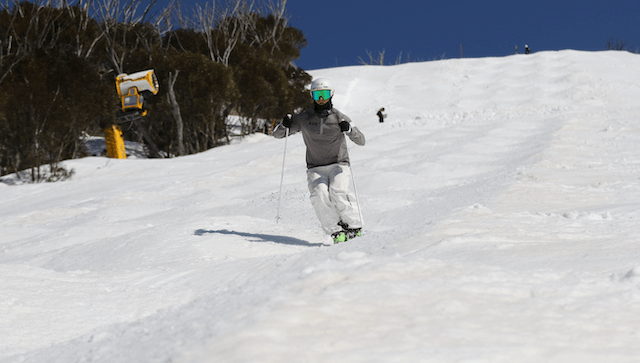
GD: That's amazing it’s such a fast recovery.
MG: With the collarbone, it’s a pretty simple surgery. I think they just kind of plate it up, chuck in a bunch of screws and fix the bone.
For me, this is a great injury to have — it's a simple surgery and recovery process. With mogul skiing, if something happens to your legs or your back or your hips, it can be pretty detrimental to return to the snow. But because this is an upper limb injury, if it only gets to 85% of what I'm capable of, then it shouldn't really affect my performance at all.
GD: The physical recovery is one thing. How do you keep your mental game strong overcoming an injury like this?
MG: I'm working with my sports psychologist quite a lot at the moment. Between now and the [Beijing] Games I'll pretty much be away from the snow the whole time, but there are certain visualisation techniques I can do to make sure my mind is still at the snow and I’m still mentally skiing.
GD: You started skiing at Perisher Sports Club when you were just 7 years old, and it’s only been onwards and upwards from there. Where does your passion and drive come from?
MG: We started out getting into skiing because of family holidays. I mean, that's kind of how it starts for everyone really — especially for people who don't grow up in the snow.
For me, it was just the fact that the whole family really enjoyed it. It spurred me along to progress a lot as a kid, and I looked up to my older brother. He was four years older than me, and he was a mogul skier. Because of that four-year age difference, he was a lot better than me. So, I was more or less just chasing him the whole time and trying to be like my older brother. I wanted to be as good as him when I grew up and that was sort of what inspired me.
But I have passion for the snow — it's just really fun. Everyone who skis usually loves it and has a good time. It’s something you can do as family and through multiple generations. I think that's something that really, really, grasped me when I was a kid.
Then the moguls itself, I found that really enjoyable. When I started out in the winter sports club, we started out doing different disciplines like:
- Alpine racing
- Some slopestyle
- Terrain park-like skiing
- Moguls
The moguls at the time were what I had the most fun doing. It started out with enjoyment and fun, then the competitive and athletic side sort of came after that.
GD: In addition to the snow, your family loves a little beach holiday as well. If you had to choose between a beach or a snow holiday, what would you pick?
MG: I’d definitely choose a beach holiday. I spend a lot of time in the snow, so these days it's nice to kind of get some warm weather and enjoy the ocean.
I grew up on the Central Coast [in NSW] and spent a lot of time in the water.
I sailed a lot as a kid competitively around Australia, so I was always in the water. Almost every day during the summer months. We’d go sailing, water-skiing, wakeboarding, wake surfing and stuff like that. That's kind of our family routine or holiday, really.
GD: You recently received the AIAS education scholarship – congratulations! Can you tell us a bit about that?
MG: Yeah, thanks. The AIAS education scholarship is in its second year now. It's basically designed to support athletes with their education and to help promote life after sport.
I'm currently studying a combined degree in civil engineering and business at the University of Newcastle. Education, for me, has just kind of always been a part of my life. Growing up I spent months and months away from school, so I had to more or less teach myself.
I really enjoy the mental switch from skiing — which can be really intense.
I found studying really helps me. It allows me to force myself to get my mind out of standard sport every now and then. That kind of keeps me calm. It sort of keeps me coming back.
So, it's almost like I feel it has benefited my skiing, just from a motivational perspective.
GD: Some would say you have to be pretty fearless to do what you do. How do you build that confidence to back yourself to trust your instincts?
MG: To progress in sport, especially the winter disciplines and the extreme freestyle sport disciplines that Australians are good at, it involves a lot of risk — like when you try new tricks.
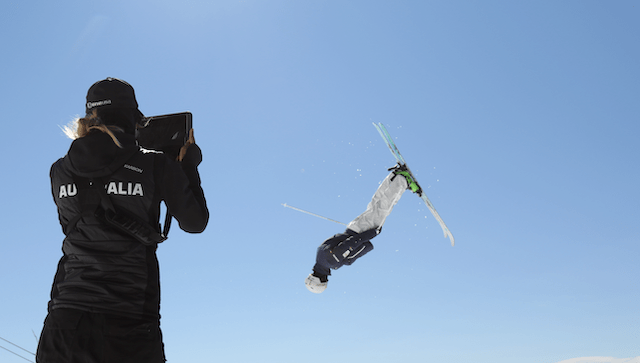
A lot of people think of snow and think it's white and fluffy and really nice and soft. But for myself, mogul courses are usually rock solid and firm. So, there's obviously a lot of risks. I've been able to more or less trust the process and trust the work [I’ve] put in to give [myself] the confidence to attack a mogul run or try a new trick — stuff like that.
Related: The power of backing yourself against all odds with Winter Olympian Belle Brockhoff
GD: What do you think is the most important decision you’ve made based on instinct?
MG: I would say something that comes to mind for me was the [PyeongChang] Olympics. The Olympic schedule usually includes five days that you can train on the course, but most people don't usually use all those five days because it can be pretty tiring and taxing on the body.
Last [PyeongChang] Olympics, my coach and I had the schedule we were going to do. I can't remember exactly – it might have been two days on, one day off and then train another two days leading to the events. I remember being there and struggling with the course in Korea. I couldn't get my head around certain parts of it.
I remember speaking to my coaches - I really wanted to train on what was going to be a day off. The coaches were initially very much against it because [it was] really going to be detrimental to the competition day — you can carry a lot of fatigue etc.
I guess my instinct was to ski on that off day, which I ended up doing and it worked out really well — winning a silver metal.
GD: What do you love most about skiing?
MG: I love competing. I love traveling around the world and all the people I travel with are more or less my best friends. The Australian team is really close-knit and the mogul team, in particular, we're all really close and friendly.
Then also going to some pretty awesome places as well. I mean, I do sometimes envy the world surfing tour. But then sometimes, like just last week, we were in the French Alps and it was nice, sunny bluebird days. So we’re pretty lucky too [laughs].
GD: I understand you've actually got a run in Perisher in NSW named after you which is pretty cool. Can you tell us about that?
MG: Yeah, so Perisher is my home resort. It’s where I grew up and first learned to ski with the family.
The Perisher Winter Sports Club is where it started for me and it's where I learned to ski moguls. It’s where I still ski every season and it’s been very supportive. Not only of myself, but the Australian Freestyle team. But they've provided a lot of support for moguls over the years, and they have one dedicated mogul run, which they build for us every year. It’s awesome.
After the last [PyeongChang] Olympics, I got a call from the team up at Perisher and they said we would like to rename one of the smaller training hills for the Winter Sports Club kids — one they also run a lot of inter school competitions on.
They said "We'd like to rename the run after you."
My mind was blown and I was very honoured. Then I also had to think of a name. We came up with Mogul Matt’s.
GD: Inspiring the next generation.
MG: Exactly - that's the plan.
GD: Are you scared of anything?
MG: I’d say my fear factor is relatively low compared to the general population. I enjoy adrenaline activities, so for me, it is more like snakes and spiders. And sharks. Fear of sharks when you're out surfing and there's a lot of activity in the water. It can be a bit daunting.
Related: Trusting instincts and chasing Gold with Winter Olympian Jarryd Hughes
Let’s talk Olympics
GD: This [Beijing] will be your third Olympics, and you've already got a silver medal and a World Cup win under your belt. What motivates you and helps you perform at such a high level?
MG: What motivates me to perform at the highest level is the reward and satisfaction that comes out of it when things go right. I compete in a sport where you are kind of playing with fire, and you play with inches. In a heartbeat, things can go from being great to horribly wrong.
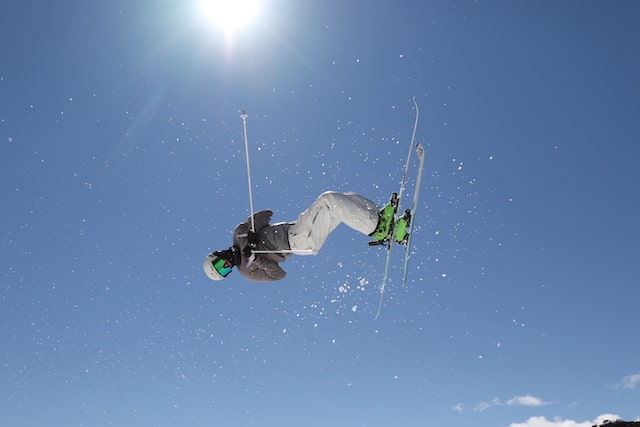
When the stars align, and things do go well, that feeling of relief and satisfaction is pretty awesome.
I remember after the last [PyeongChang] Olympics, when I put that last run down and won the silver medal, it was just kind of like the feeling of relief and satisfaction — something I haven't really experienced before.
GD: Excluding your current injury, what does a typical day in the lead-up to the Olympics look like for you?
MG: On a typical training day we would spend three or so hours out on the hill, on the mogul course training, [or] doing skill training. Then we would come in for a lunch break, and in the afternoon we would probably go to the gym for an hour and a half or so.
Our general schedule in a training camp would be doing four-day cycles. So, we'll do three days training and then one day off.
GD: Do you have any superstitions before you compete?
MG: Not really. I've never really been a superstitious kind of guy. I feel like I've always thought about this stuff — like when you grow up and you hear about people having their favourite pair of jocks or they only wear a certain t-shirt on competition day.
I thought about it and thought - maybe I need to have a favourite t-shirt to wear. Then I thought stuff it, because if all of a sudden if things don't go your way, or for some reason you can't wear your t-shirt, then that can get in your head.
So, I decided to leave superstitions to the side and just focus on the performance
GD: I have a sneaking suspicion I know the answer to this one, but what are your personal goal for these [Beijing] Olympic Games?
MG: Well at the moment it’s to get fit and healthy. That's the current goal, which I believe is very achievable.
The dream has always been to win an Olympic gold medal, and that hasn't changed since I was a kid.
So that's what I'm striving for. Everything I do in between now and then is dedicated towards that. But at the moment, the main focus is just getting there healthy.
GD: That’s a fantastic response. It sounds like you have a great support network. Who helps you do what you do?
MG: My family has always been behind me. I have a pretty close-knit family on the Central Coast. Mum and dad pretty much got the whole thing started and financially supported me a lot of the way through.
These days, the support network is very much associated with the team. I'm in the Australian mogul team and the Olympic Committee of Australia. They are basically the backbone of my career, my teammates. So, I’d say that the team environment is kind of the main support network at the moment.
GD: How important would you say it is having somebody that you can trust to help you perform?
MG: I compete in an individual sport, so on the day, I’m the only one that people see. I get all the accolades but there's so much more to it than that, you know, between the:
- Skill coaches
- My teammates pushing me
- All the people behind the scenes, taking care of the logistics
Without all that support, there's no way I would be able to just turn up to training with a free mind and focus on my job — which is the skiing and the jumps. If I had to take care of everything myself, there is zero chance I'd be anywhere near as good as I am. The team is very important to an athlete’s success.
GD: Do you have any business ideas or aspirations?
MG: Part of my uni degree is entrepreneurship and innovation. I did an entrepreneurship course last year and we were able to create a business idea. I had the idea of an online coaching platform for all different sports, where you link athletes to coaches and then also athletes with:
- Medical staff
- Physiotherapists
- Strength and conditioning trainers
So that was the idea I had last year, which I thought was pretty cool. Obviously I haven't seen it through. Have a few other things going on at the moment [laughs].
Now for a bit of fun
GD: If you had to choose, would it be dogs or cats?
MG: Dogs.
GD: Favourite food?
MG: Steak
GD: Who inspires you?
MG: The likes of Rafael Nadal, Roger Federer. The older athletes who are still crushing it.
GD: Do you have any nicknames?
MG: Current nickname is Splat.
GD: Splat, is that a very recent nickname?
MG: As of September 2021. I have had other ones, you know — Slab, stuff like that. But Splat is the most recent one amongst the team.
GD: How would your friends describe you in three words?
MG: That’s a really hard one! I would say sporty, fun and nice. That’s what I would hope they would say.
GD: How would your coaches describe you in three words?
MG: I hope my coaches would describe me as being resilient and hard working.
GD: If you could live anywhere in the world, where would it be?
MG: Maybe in like a beach house on the Central Coast, where I'm from. I really like it there. I like to come home.
GD: Do you trust your instincts?
MG: I do trust my instincts. Part of the parcel with high-level sport and especially with sort of extreme sports.
